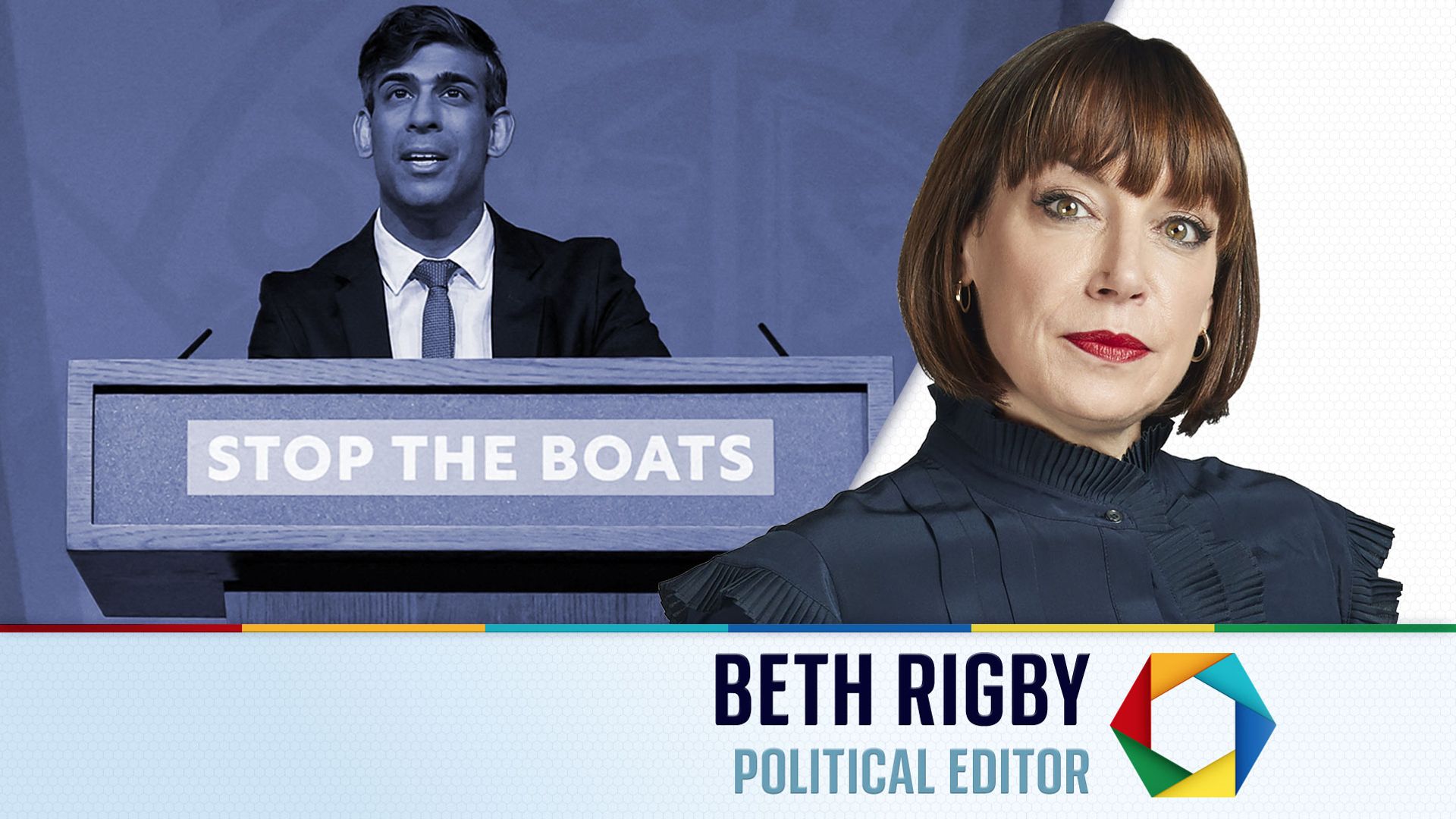The prime minister wouldn’t put a number on how many asylum seekers he intended to send to Rwanda to have their claims processed.
But Rishi Sunak‘s news conference on Monday left no doubt this is the policy on which he is staking his premiership.
He didn’t talk today about the odd flight getting off the ground. Instead, he talked about a regular rhythm of flights beginning in July, deporting perhaps thousands of migrants.
Politics live: Lords vote for amendment to government’s Rwanda bill again
He refused to give us a number of how many people he wanted to send to Rwanda but doubled down on his promises.
When I asked him whether passing his Safety of Rwanda bill was a moment of success, he immediately replied that “success is when the boats have been stopped, that is what the country expects”.
It seems a near-impossible task.
Boat crossings this year have risen 25% against 2023, with 6,265 people, and there is obvious scepticism as to whether flights to Rwanda would really deter asylum seekers from making the crossing.
There is also plenty of scepticism that the government won’t be hamstrung by legal challenges again.
Please use Chrome browser for a more accessible video player
But Mr Sunak said he was “confident” the plan complied with all international obligations, hinting he would be prepared to ignore the European Court of Human Rights if necessary.
“If it ever comes to a choice between our national security – securing our borders – and membership of a foreign court, I’m of course always going to prioritise our national security,” the prime minister said.
There are still plenty of legal and political risks, but Mr Sunak was crystal clear: the flights will continue as long as the boats keep coming and he will deliver on this pledge to make the Rwanda scheme fully operational.
“The PM is on the front foot on this,” said one senior government figure. “He’s all over it and determined to deliver the policy”.
To that end, commercial flights have been organised, an airfield put on standby and 500 officials trained to escort migrants to Rwanda.
Around 2,200 detention spaces have been reserved for those the government plans to remove and 25 courtrooms reserved to deal with legal challenges to get the flights away in 10 to 12 weeks.
‘Doomed to fail’
But after all the false starts, will it really happen?
There are those on his own benches – Suella Braverman, Robert Jenrick and a couple of dozen of others – who voted against this bill and simply think it won’t work.
Lord Carlisle, the lawyer and crossbench peer, told me the prime minister “is doomed to fail”.
“The boats have not been stopped,” he said. “The number of people arriving on boats has increased, despite blanket publicity for this policy the government is trying to push through.
“The way you stop the boats is dealing with the criminal gangs and by the government increasing the administrators that will look at which asylum seekers and refugees are dealt with. It’s not rocket science.
“What they are doing at the moment is near to the realms of fantasy.”
But for the prime minister, still so far behind in the polls, what has he got to lose?
He’s staked his reputation on this policy and has no other option to try to make it a success. Tackling small boats will be the pledge he’s judged on when the general election comes.
Keep up with all the latest news from the UK and around the world by following Sky News
Talk of flights through the summer into autumn, as well as a mooted fiscal event later in the year, point to an election in the autumn (with two senior figures telling me in recent days December is now being talked up too).
But none of this comes in time for the more imminent ballot box test of next week’s local elections, which could not only put him back on his heels, but into freefall once more.
He clearly has the plan, whether he will have the political space to implement it is another matter





